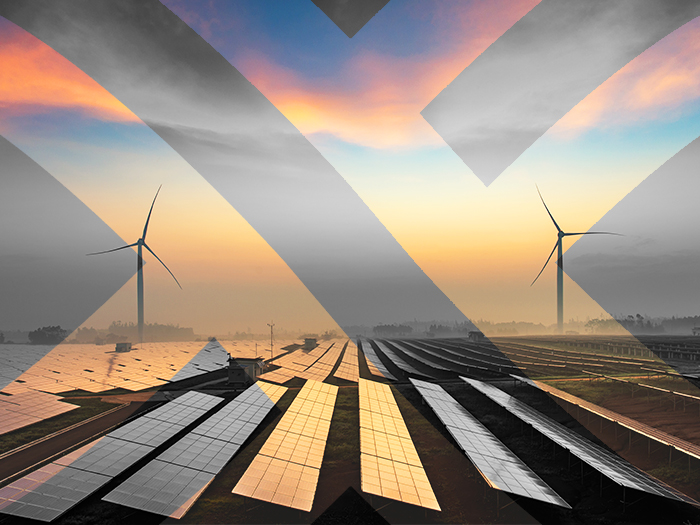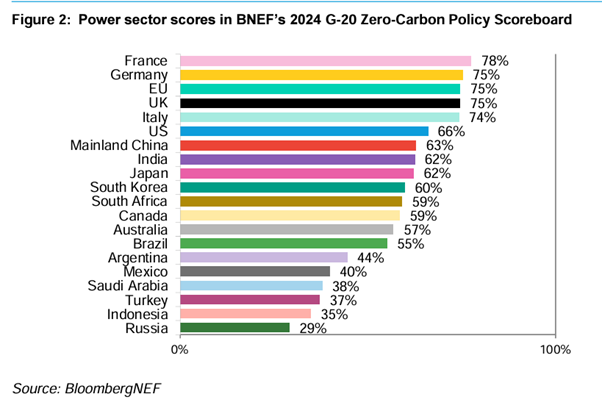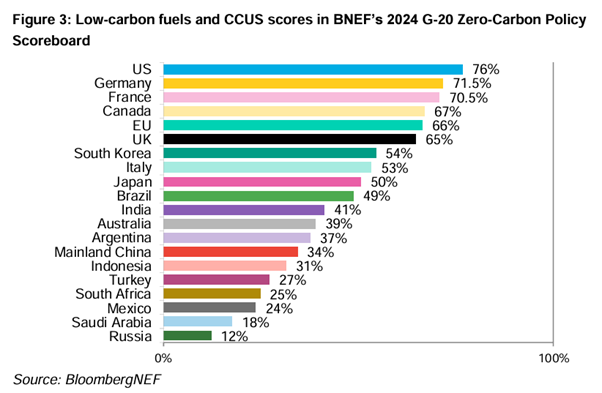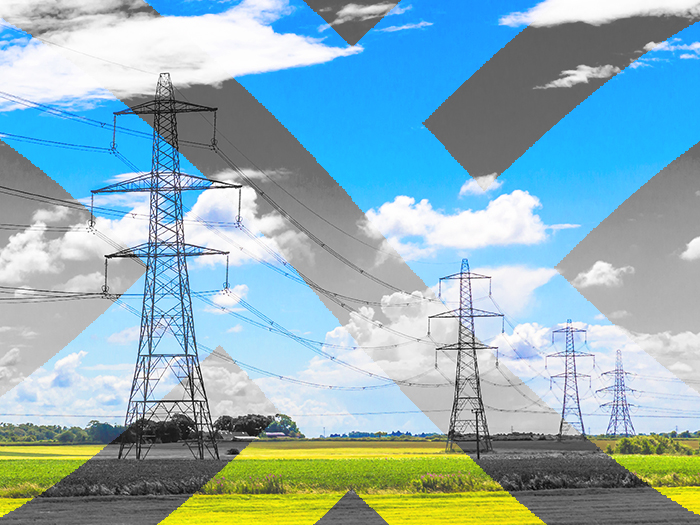News
better business decisions
Posted 1 year ago | 2 minute read

Limited progress on decarbonization, says BloombergNEF
The world’s largest economies have made limited progress in boosting their decarbonization policies over the past year, according to the fourth annual edition of BloombergNEF’s G-20 Zero-Carbon Policy Scoreboard.
Published on 8 April, the scoreboard said that the EU and its member states, the UK and the US have retained their lead for power policy. This is due to bold clean energy goals, renewables incentives and mandates, coalfired electricity regulations and phase-out targets, and strong carbon pricing regimes. However, the clean power scores for the EU as a whole dropped, in part due to the decline in the bloc’s carbon price, which made it less effective at driving decarbonization. In addition, EU lawmakers reached a deal in December allowing member states to continue subsidizing coal-fired power plants until at least the end of 2028. France also lost points after announcing a three-year delay to its coal phase-out to 2027.
Australia achieved the biggest increase in their score – by 11 percentage points, after it launched and expanded a competitive tender program to procure renewables and clean dispatchable capacity.

The US has cemented its place at the top of the G-20 ranking for low-carbon fuels and CCUS policy, with a rise of 6.5 percentage points from last year. It has long been a world leader in the biofuel markets, and the improved 45Q tax credit for CCUS as part of the Inflation Reduction Act helped drive a record number of project announcements in 2023.








